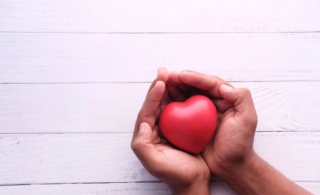
in life, everyone needs to know that they are cared about. A cancer diagnosis turns someone’s world upside down and overnight they can become scared, emotional, vulnerable and anxious. Having friends and family step up and show kindness is a lifeline that can carry someone through from diagnosis to the end of treatment (and importantly, beyond).
Practical support to help someone going through breast cancer
Practical help is the biggest gift you can give your friend or family member while they go through surgery, chemo or radiotherapy.
- Deliver meals which can be freezed and reheated at a later date (but check if any food allergies, taste issues arising out of treatment etc.).
- Help with childcare after school, at weekends and during school holidays.
- Offer to organise a rota with other friends to help out with childcare, school runs, children’s club runs, chemo trips, radiotherapy trips, medical appointments.
- Take ironing to do for them.
- When they are suffering from the chemo side effects, offer help in the home such as putting on the washing, emptying the dishwasher and hoovering.
- Offer to pick up groceries, toiletries, prescriptions and anything else which saves them from making a trip to the shops.
- Offer to take them to any medical appointments and take notes during the appointments.
- If you live close by then you could offer to be a night-time emergency contact so that if they needs to go to hospital you can either be the person to go to the hospital, or you can babysit the children.
- Offer help and make it clear that you genuinely mean it (even after the tenth time that they decline it; they might accept it on your 11th offer).
Emotional support to to help someone going through breast cancer
- Try to be there every step of the way. It is a long old slog getting through the treatment so don’t let your support subside – keep it up for the entire journey (including after all the treatment has ended which is an emotionally tough time).
- Be thoughtful throughout all treatment. Remember that what they are going through is huge.
- Visit. Not just straight after diagnosis or surgery, but regularly throughout treatment. They will appreciate the company and the distraction.
- Take your cues from them as to how much they want to see people and talk to people. Don’t assume they want to be left alone. But don’t assume they need company. They will need both at different times.
- Keep in touch – send cards, notes, letters, emails or texts without expecting a reply. If you write “no need to respond” they know that they don’t have to reply.
- Be flexible and understand if they cancel a visit last minute. This will probably happen at some point.
- Respect their privacy.
- Don’t write them off. Treat them much the same as before they got cancer so if you are arranging a social event then include them in the invitation. They need to know that they haven’t been forgotten.
- If they are up to seeing a few friends then take lunch to their house with a couple of friends (without being overwhelming).
- Take afternoon tea (and friends) to them.
- Offer to go for walks with them. Pick them up and drive to a nice place for walking.
- Offer to take them out for lunch or a coffee.
- Remember them: send a quick hello text. Perhaps set a calendar alert on your phone to remember to text every few days or so. Getting through tough treatment can be very lonely knowing that everyone else is just carrying on with their normal lives.
- Listen when they need to talk.
- Be a shoulder to cry on if they need it.
- Celebrate the milestones with them
- Give gifts to their children and partner. They need support too.
- If you arrange to visit, then do. Try not to cancel (unless of course it is impossible). Visits from friends and family are so important and mean so much.
- Understand that throughout chemo and beyond, they will have very low immunity and won’t be able to come into contact with people who are poorly: don’t visit if you or your household member is ill so you don’t risk passing on bugs.
- And remember that although you won’t know what they are going through unless you have been through it, open your mind and try to understand it.
To return to the homepage of our Information Hub, click here where you can access more helpful information, practical advice, personal stories and more.
Reviewed March 2024
We’ve put this list of recommendations together from our experience as patients but we encourage to use these as a starting point from which to do your own research. The links and/or recommendations in this article to third-party resources are for your information and we take no responsibility for the content contained in those third-party resources. Any product recommendations made in this article are not product endorsements and unless otherwise stated, they are made without any affiliation to the brand of that product. We ask you to note that there may be other similar products available.
Share

Support awareness research
Donate to those touched by BREAST cancer
Sylvie and Danielle began Future Dreams with just £100 in 2008. They believed nobody should face breast cancer alone. Their legacy lives on in Future Dreams House. We couldn’t continue to fund support services for those touched by breast cancer, raise awareness of breast cancer and promote early diagnosis and advance research into secondary breast cancer without your help. Please consider partnering with us or making a donation.




